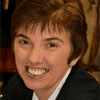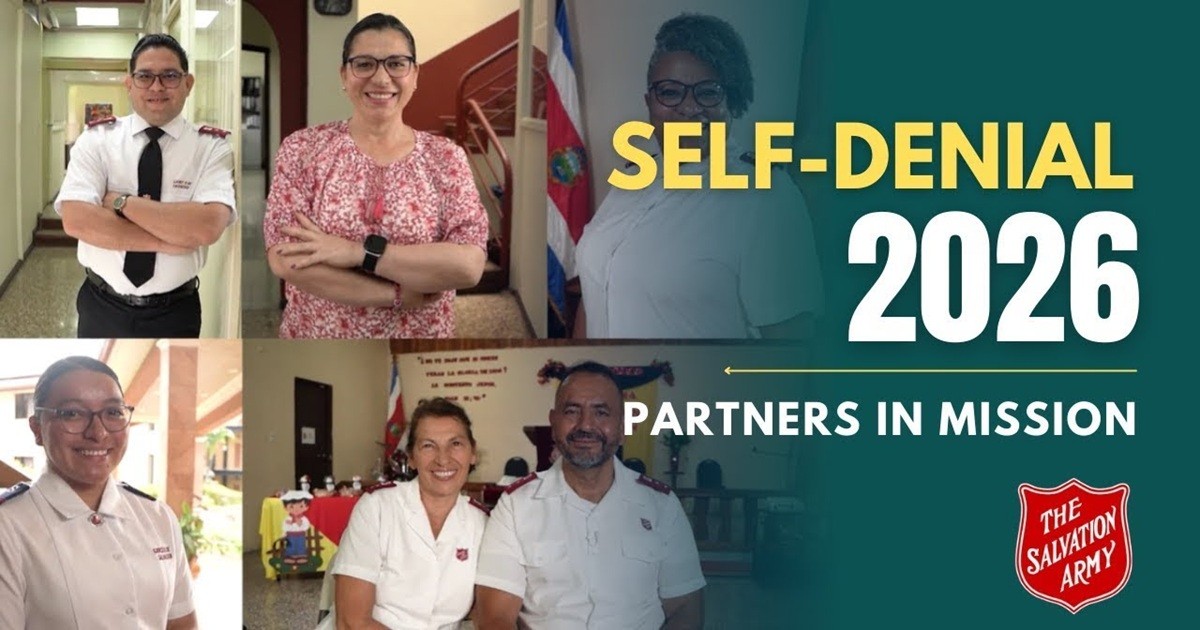 As I write this blog, I am travelling home from Minneapolis. It's been quite the week culminating with the completion of my doctoral defense. I'm not sure if it is thesis withdrawal I'm feeling or what, but it is inviting a space of contemplative reflection. Let me open the door and invite you inside!
As I write this blog, I am travelling home from Minneapolis. It's been quite the week culminating with the completion of my doctoral defense. I'm not sure if it is thesis withdrawal I'm feeling or what, but it is inviting a space of contemplative reflection. Let me open the door and invite you inside!
Yesterday I stood to defend the tradition of Salvation Army preaching to a non-Salvationist audience. Drawing from the early days of The Salvation Army, I argued that there was a form of biblical preaching, first modeled from the pulpits of William and Catherine Booth, that not only had influence and impact in a Victorian context, but that presses relevance to our postmodern world. Without giving you the whole thesis, the big point was that William and Catherine believed that the Gospel was the answer to humankind's deepest needs and troubles. Aggressively, the Salvationist preacher was called to proclaim this truth and to point sinners toward the need to put their lives right with God. With this foundation established, it was the contention of the thesis that the early homiletic of the Booths could provide a viable model for breathing fresh life and vitality into postmodern pulpits.
 For over an hour and a half, I was drilled on why the theological and missional claims informing early Salvation Army preaching had any relevance to the space in which my learned colleagues now minister. It was a rich conversation to say the least! Walking away from the experience, I find myself standing taller as a Salvation Army preacher, so thankful to God for the legacy of Salvationism of which I am a beneficiary. I also experience the sense of gratitude my colleagues have offered for the manner in which the voice of the Salvationist brings freshness to their own missional perspective.
For over an hour and a half, I was drilled on why the theological and missional claims informing early Salvation Army preaching had any relevance to the space in which my learned colleagues now minister. It was a rich conversation to say the least! Walking away from the experience, I find myself standing taller as a Salvation Army preacher, so thankful to God for the legacy of Salvationism of which I am a beneficiary. I also experience the sense of gratitude my colleagues have offered for the manner in which the voice of the Salvationist brings freshness to their own missional perspective.
With these insights aside, however, I find myself wondering what I am left holding at the end of this process. Some might argue it's the thrill of accomplishment─no more long days and nights editing material or meeting program deadlines! (To this, all of my family is giving a cheer!) Yet, others might suggest the greatest gift is to be left holding the actual diploma and the title. Strangely, this is not what seems to linger the most. It is the richness of the questions that have informed this process and the space that this has opened for continuing research and contemplation.
As I stood to make my defense yesterday, words of encouragement from one of Heritage Park Temple's newest soldiers came ringing in my ear. “Julie,” she said, “remember that as you defend your work, every question you entertain is an indication of the searching that is out there in the universe.” The comment becomes a little more significant when you know this woman's story. Presently she is a patient in our Grace Hospital Hospice, and in a very short time, she will die. Through the faithful ministry of our Salvation Army chaplains, she has recently made a commitment of her life to Christ.
Every question you entertain is an indication of the searching that is out there in the universe
We had the wonderful privilege of enrolling her as a soldier in her hospice room just two weeks ago. She, herself, is a woman of learned background. She, too, has stood before an examination jury to defend her own doctoral work. At this stage of her journey, she knows about the questions of the universe. As a matter of fact, her life has been changed because has finally has been able to resolve some of these questions and find true peace with God. Isn't that what we are all about as Salvationists? Helping people resolve the deep questions of life so that they can find hope through a meaningful relationship with God? I met some of those questions head on yesterday in my doctoral defense, but I close this chapter recognizing there is still so much more conversation to be had.
It presses one further challenge for this preacher. Herein, the words of a former systematic theology professor replay alongside the words of our newest soldier! “Make sure …” he would always say to us theologians in the making, “… make sure you are always asking the questions to which people are actually seeking answers.” This professor knew well that the ability of Christian believers to relate their relevance to the rest of the world was dependent on this premise. It makes me wonder, Canada and Bermuda Territory, what do you feel are the most pressing questions for the people to whom you minister? Holding these questions in view, how can we as postmodern Salvationists best speak into the ministry opportunities of this moment? I've got my ears on, so talk to me!
 Major Julie Slous is corps officer at Winnipeg's Heritage Park Temple. She also serves as adjunct faculty at the College for Officer Training. In May 2009, Julie will complete her doctoral studies in biblical preaching. Her thesis work centres on “Preaching a Disturbing Gospel─The Homiletic of The Salvation Army for Postmodern Times.” When not studying and writing, personal hobbies include reading, cooking, musical composition and, of course, listening to sermons! Married to Brian, she has three children.
Major Julie Slous is corps officer at Winnipeg's Heritage Park Temple. She also serves as adjunct faculty at the College for Officer Training. In May 2009, Julie will complete her doctoral studies in biblical preaching. Her thesis work centres on “Preaching a Disturbing Gospel─The Homiletic of The Salvation Army for Postmodern Times.” When not studying and writing, personal hobbies include reading, cooking, musical composition and, of course, listening to sermons! Married to Brian, she has three children.









Thanks, Major Hong, Sunghyo